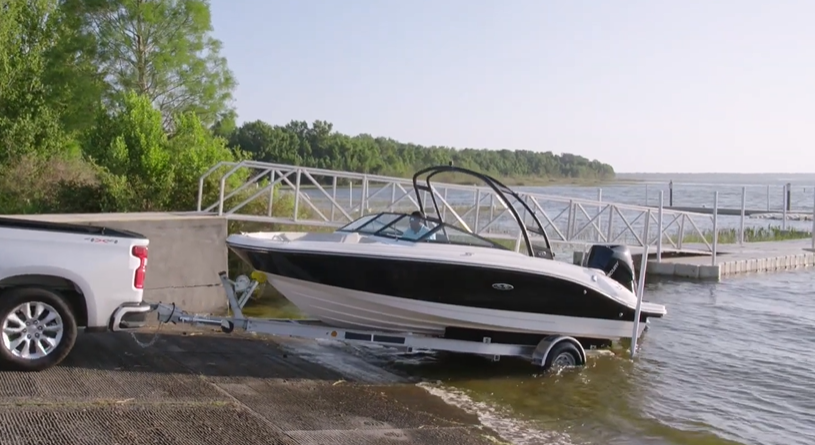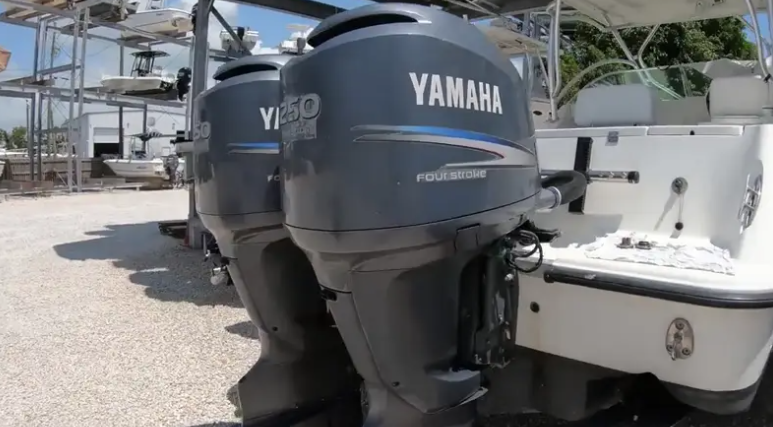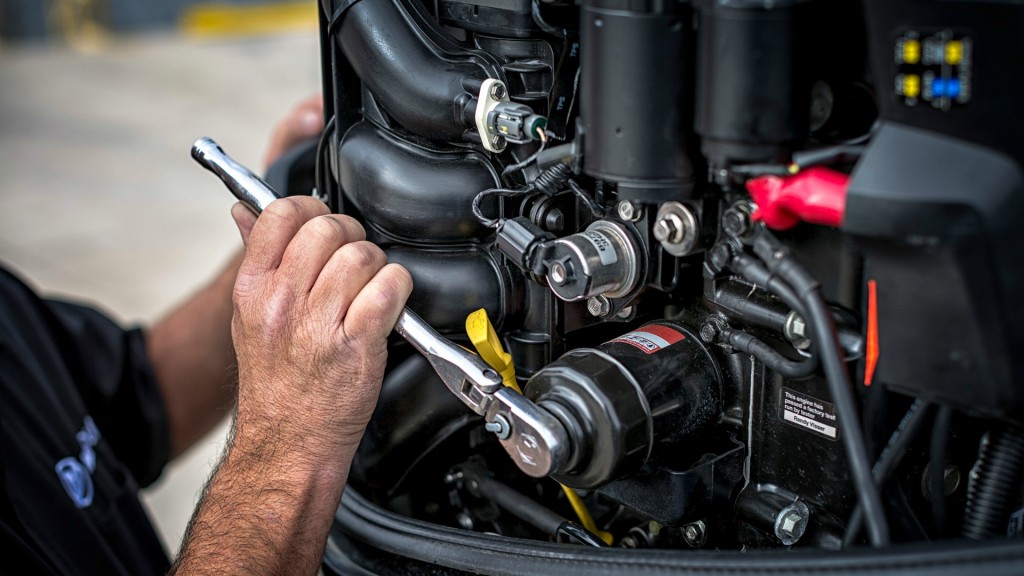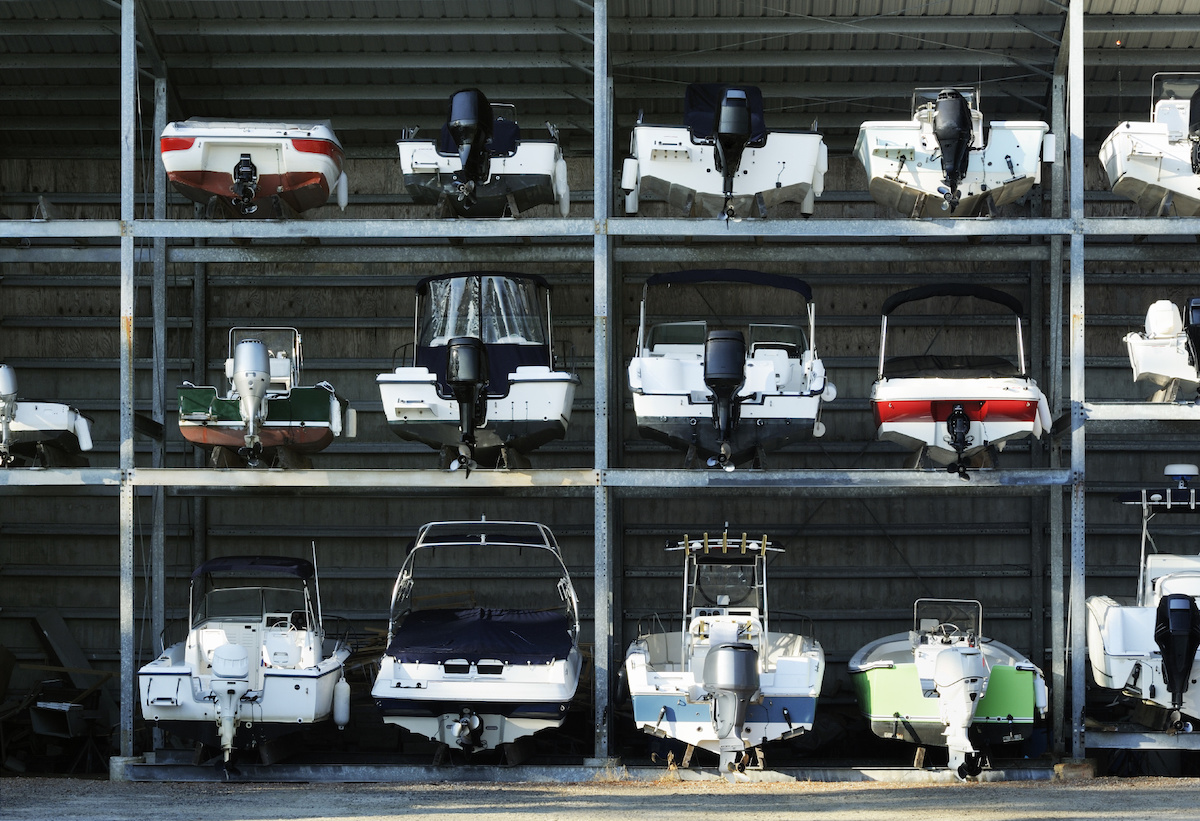Taking Your Boat from Freshwater to Saltwater

Originally being from Illinois and used to running boats on freshwater lakes, these are the things I have learned since moving to and boating offshore in the Florida keys.
10 Tips To Know If Taking A Boat From Freshwater To Saltwater:
- How far South do you plan to go?
- The type of Boat that is best to own
- What type of Engine is best to own?
- What to know about maintenance?
- The kind of effect saltwater has on your boat
- What is the difference in boat storage?
- Summerization vs Winterization
- Learning about tides
- Nautical Navigation
- Trailer Abuse
These are some of the top 10 things that you should know and expect when moving a boat down from freshwater to saltwater.
1.) How Far South Do You Plan to Go?
This is probably the very first thing that you want to determine. There are a lot of variables when talking about the effects of saltwater. Also, what kind of things you will have to deal with.
Understanding that not all saltwater is the same, is extremely important. When asking the question about how far south do you plan to go, this is to determine what kind of eco-system you will be moving the boat into.
What will the average temperature be, and what kind of plant and animal life lives there?
Because there is a huge difference in northern saltwater versus southern saltwater; the salinity of the water has a major effect on whether the effects will be quick and a pain to deal with. Or not really a problem and you don’t have to worry too much about.
The farther South you go, the warmer the water gets. The warmer the water gets, the quicker things can grow, and damage your boat! Living in the keys we see it all the time. People can come down from Northern Florida and not realize how much worse the saltwater down here is on their boat.
The temperature along with the shallow water on the flats and the reef, make for an amazingly great climate for barnacles to grow, electrolysis to set in, and oxidization of metal and aluminum parts!
The clear blue water also has its effects, in this tropical area. With the water being only 20-30 feet deep for miles out, and clear enough to see the bottom, the growth is that much quicker because of the sun rays that are allowed to hit the bottom of the sea. Where Northern darker, brackish, cold water doesn’t allow things to grow as fast.
The minerals that are produced due to all of the plant life and fish life, makes for an even better environment for barnacles to grow on your boat. Which can be damaging and extremely hard on the hull of the vessel.
You can check out another article we wrote for a little more information on saltwater and long term storage of a boat.
2.) What Type of Boat is Best to Own in Saltwater?
After figuring out where it is that you are planning to move your boat, it is important to use that understanding to think about what type of boat is best to own, in the area you have picked.
The type of boat will have a large effect on what you will have to deal with in the new boating environment you are planning on tackling. Knowing what exactly it is that you want to do with the boat is another huge deal.
Having the wrong type of boat can have an adverse effect on a person. Instead of enjoying and de-stressing, it can be burdensome, hassling, and even frightening! I’ve seen a lot of people that have grown up on the lakes in the Midwest, owning pontoon boats their entire life.
They come down to The Keys and want to bring their pontoon boat to take out to the reef and go fishing. Knowing what we know about how corrosive and damaging the saltwater can be on metal; the pontoon boat begins to pit and fall apart after only a couple of years.
Then, undertaking a voyage out to the reef and encountering a pop-up thunderstorm can be unnerving. A pontoon boat can become extremely unsafe and downright dangerous for being offshore!
This type of bad experience can end their boating career and leave such a bad taste in their mouth that they don’t even enjoy the water anymore.
Having the wrong boat and misapplying it’s uses is a huge deal. If you are going to an area with a lot of flats and shallow spots, having a 28 foot deep-v cabin cruiser is not going to let you enjoy the water. You would want a bay boat, a smaller flats boat, jon boat, or a bass boat. Allowing you to adventure and take on the fishing experience that you are looking for.
If you are going offshore, deep water. A cabin cruiser or a nice center console will best suite the fishing you are shooting for.
If you just want to hit up the sandbar for some family fun, a nice size deck boat might be what you want. Making sure that your boat is set up for the region and waters that you are moving to, is key to having a fun enjoyable time out on the water.

3.) What Type of Engine is Best to Own in Saltwater?
The expensive portion of owning a boat, the engine! The maintenance, flushing, cleaning, and repairing that has to be done to an engine is a huge factor in the longevity of that motor.
After picking what type of boat is going to suite you best, understanding the cost of taking care of the engine on the boat is the next big factor.
Because of the damaging factors of saltwater, the preferred power of the saltwater community, for recreational use, is an outboard.
With most of my recent boating experience being in The Keys; I’ve seen fewer and fewer technicians and shops down here that will even work on an inboard. I/O or sterndrive doesn’t matter.
The rusting and salt corrosion that the engine encounters in saltwater, makes it extremely expensive to service and own. Which is what makes outboards so appealing to everybody. The cost is so much less and the care is so much easier. It is almost universal for saltwater fisherman to choose an outboard over anything else.
Unless it is a larger boat or yacht, diesel engines are a preferred engine among many commercial fisherman, trappers, or large vessel charter captains. But these are bigger boats, and way more costly to own and operate.
They give a fishing experience like no other, with the cabin spaces, and towers. But for the average Joe, it’s too costly to run. Which is what you decide what is right for you when picking the type of boat that you are going to use, or bring with you.
Diesel engines and outboards are the way to go in saltwater. If you have a gas powered inboard, it is almost always a better choice to sell it before you move and purchase the exact boat you are looking for when you get where you are going.

4.) What to Know About Maintenance
Before moving on from the engines, we need to give a little more on the point. That being about the cost and the maintenance of the engine.
The maintenance of the engine is key to its longevity. When having a boat in the freshwater lakes of the Northern Hemisphere, you are not dealing with the corrosive and damaging attributes of the saltwater.
You can go 10 years and never change the water pump impeller and have absolutely no trouble dropping the lower unit and changing it out.
When talking about saltwater on the other hand, that is a different issue. I have personally, firsthand, dealt with engines that have gone 4 years without an impeller change. It can take up to 8 hours just to get the lower unit off, if possible, without damaging the power head.
On most outboards, there are o-rings and seals at the top of the driveshaft of the lower unit, just under the oil pump.
Over the years of saltwater use, salt build up can form around these rings and the driveshaft; allowing the salt to work its way up around the splines of the driveshaft, rusting it in place!
With the driveshaft splines rusted into the splines of the engine's crankshaft, it becomes a whole new ball game (an expensive one at that), to remove the lower unit! Obviously, this does not happen every time. But the longer you wait, the more likely it will be something that has to be dealt with.
If the seals and o-rings corrode around the driveshaft, when it is finally forced off the engine, it can tear the seals. This creates a new problem, of pulling the powerhead to replace them. Sure, it doesn’t happen to every engine. But it happens it enough to merit a section and warning on our list.
5.) What Kind of Effect Does the Saltwater Have on Your Boat?
Saltwater isn’t the only thing that you need to think about. How close the boat will be to the water is another thing. As you get closer to sea level and closer to the water, the water evaporates and makes the air salty.
The salty air is abrasive and will be blowing on the boat, all the time. With the salt building up on the boat’s hull, oxidization and fading of the paint or gel-coat can happen in only a couple of years.
Making sure that the boat is getting waxed twice a year will help to prevent this from happening. This is another unforeseen problem that boaters do not generally have to deal with on freshwater lakes.
A boat can sit near freshwater for years. Then, after a good cleaning and wax, it can look like it was fresh off the showroom floor.
Unfortunately, this is not the case in a Southern saltwater environment. A couple years sitting and you are talking about wet sanding, compounding, and waxing to get the boat to look clean and newer. It will never have that showroom floor flare if the salt is allowed to bed itself into the hull!
The same goes for the metal and aluminum that is on the boat. T-tops, window frames, metal seats, hatch latches, and door latches. Anything and everything that is metal will rust and even corrode in a matter of a couple years if not washed and properly cleaned.
Rotating or sliding seats will freeze in place if not properly lubed and washed down. The aluminum on the window frames, t-top posts, and leaning posts, if not cleaned and protected, will corrode and begin to pit. Once the pitting begins, there is no getting rid of it. It is now a permanent feature and attribute of the boat!

6.) What is the Difference in Storing Your Boat?
Boat storage will also be a different thing to think about. Will the boat be on a trailer, on a boat lift, in the water, on a dry storage rack, inside or outside? All these are huge factors to take into account when moving your boat from freshwater to saltwater.
Knowing what we have talked about with the effects of the salt, the type of boat, the maintenance and the effects on the hull; where and how the boat is stored will also be a concern.
If the boat is on a trailer at the house, investing in a boat cover would be a good idea. Keeping the boat out of direct sunlight will save tons and keep it looking good for much longer.
The closer you get to the equator, the harder the sun is on the boat. Seat cushions and fabric stitching can disintegrate in only a couple of years. Getting a cover to keep the sun off them will save them from that damage.
The same goes for storing the boat on a boat lift. Keeping that hull clean and the boat covered will help prolong the boats life.
If you plan on keeping the boat in the water, then bottom paint will be a must! The barnacle growth that we talked about earlier, will happen in only a couple of days, weeks, and don’t even think about months, without bottom paint.
The growth on the bottom of an unpainted boat left in the water for a month … You’ll be lucky to get the boat on plane with all of the barnacles that will be growing on the bottom of that hull!
7.) Summerization vs. Winterization
The difference in seasonal storage will also be a change. When moving a boat from freshwater to saltwater, depending on what region of the world you are talking about; the storage process will be a little different.
Freshwater boats usually deal with your normal flush and fog and drain all of the water out of the block. Winterization deals with freezing conditions and shrink wrapping the boat.
Summerization is a little bit less work than winterization. You don’t have the freezing concerns. So you still have the flush and fogging of the engine. Draining the VST’s and putting stabilizer in the fuel. But the shrink wrapping isn’t really necessary.
If you have a boat cover to protect the cushions from the sun, then you don’t really have to worry about keeping the freezing water and snow out of the boat. Of course this is only for warmer saltwater regions. But it is worth a note because of the benefits it has.
8.) Learning About Tides
When talking about saltwater vs. freshwater, most of the time we are talking about offshore and deep water regions. If someone is used to running their boat on a lake, they may not understand the dangers of being offshore.
Weather conditions can play a huge part in when you are able to use the boat. Depending on the region and type of boat that you have.
There are a lot of different things to learn, currents, tides, and rough seas. If you are used to leaving your boat tied up to the dock at the lake all the time, not really having to mess with the lines or think about the tide changes; then it is something that needs to be addressed.
It never fails, at least a couple times a year we have to deal with trying to save a boat that someone tied up improperly. A lot of times they are on vacation from a freshwater lake. They tie their boat up tight to the dock and go to sleep. Not realizing that the tide can shift up and down 1, 2, 3, even 4 feet sometimes. Leaving the boat tied tight, catches on the dock and flips the boat over, sinking it at the dock!
This turns a good time, into a huge nightmare, really quick!

9.) Nautical Navigation
Saltwater boating is a little different from being on a lake because there are a lot of nautical navigation and markers that really need to be learned.
Learning how to read the waters to look for ripples on the water and being able to see shallow shoals and flats, are not only important, but can be life saving.
Be cautious of the markers and know what they mean. Read stakes and buoys in order to not run aground or stay out of prohibited areas.
There are also a lot of little things that need to be learned, like using the compass, and how to operate a VHF radio.
Boating on a lake you don’t need to know which direction is north or south. Being offshore in the saltwater is completely the opposite. You want to be aware of your surroundings and know that if there is a problem, you know how to get back home!
Knowing that if the GPS fails, you can point the boat in the direction to get back to the house, using the compass. Or, if there is a real problem, you can get on the VHF radio and call for help! There are a lot of saltwater areas that you are completely out of cell phone range and knowing these different nautical navigation tips will be a huge help and give you peace of mind!
10.) Trailer Abuse
Last but not least, is a little about the effects of the saltwater on trailers. Dunking a trailer in the water every time you use the boat isn’t that big of a deal. that is, when we’re talking about freshwater.
Saltwater on the other hand, big deal! Lights, axles, hubs, brakes, and the frame of the trailer itself, all need to be rinsed off with freshwater, after dunking the trailer in saltwater.
The same corrosive and pitting effect that happens to the engine and the boat, will be just as bad on the trailer. So making sure you get it nice and rinsed off, will lead to a longer and happier life of your trailer.
We hope this was a helpful article to better educate you on what you will come to expect and need to know about moving your boat from a freshwater area to a saltwater area. If you’ve got any questions or comments, let us know by subscribing to our YouTube Channel!